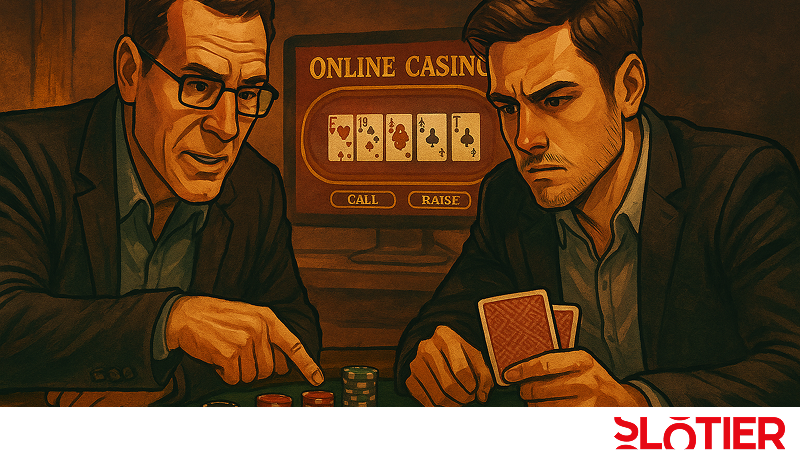Is It True That Coaching Exists in Online Casinos?

Over the past ten years, attitudes towards gaming have changed markedly. Online games have ceased to be exclusively a means of recreation: they have become a platform for development, a profession, and a way of self-expression. In this context, a new type of specialist has emerged and strengthened — a game coach. From CS and Dota to poker and table games in online casinos, coaches are increasingly helping players adopt a more structured approach. But who are they, what are they teaching, and why are they needed at all?
The Path to the Profession: Who Becomes a Game Coach
Game coaches are most often former professional players or analysts who have accumulated experience over the years — in tournaments, clans, on streams. Some of them worked in teams, while others explored the mechanics, decision-making systems, and behavioral strategies of the game.
The format of the work can be different: from individual sessions via Discord to streams with open error analysis. For some, it's enough to watch someone else's gameplay and understand what went wrong, while others might work with a coach for several months, building their game strategy anew. This model is increasingly reminiscent of classical mentoring, only in digital form.
What training does: from mechanics to thinking
Game coaching is not just about "learning the buttons." A good coach helps you understand the structure of the game, learn how to analyze situations and make decisions based on logic rather than emotions. This is especially noticeable in strategic disciplines such as poker, where the decision often depends not only on the cards, but also on how well the player can read the situation, control impulses and behave over a long distance.
Even in table games, which are traditionally considered simpler in terms of mechanics, coaches' attention is often focused not on technical aspects, but on behavioral ones. When a person makes the same mistakes over and over again, the coach helps to see it and change it.
Game coaching and excitement: a fine line

Interestingly, coaching is gradually penetrating into the field of gambling entertainment. Although the classic Online Casino in Canada does not involve mentoring in the usual sense, communities are emerging where betting strategies, bankroll management methods, and even player psychology are discussed.
One of the cases that deserves attention is Slotier, an online casino that focuses not only on gaming capabilities, but also on the visual component and interface. Users discuss how the site's structure affects the choice of slots, how the mechanics work in modern online casino games Canada, and what game patterns shape behavior. It's not so much learning the game as observing how the digital environment shapes thinking. In such environments, attention to detail and structure becomes more important than the bet itself.
Emotions, Focus, and Resilience: Why Games Need a Psychologist
Many coaches pay great attention not to technique, but to working with attention, managing emotions, and recovering from losses. This is critical in esports, but it is no less important in gambling. Tilt (loss of control), burnout, and impulsive decisions are all part of everyday life for those who play regularly.
A game coach helps not only to "play right", but also to build a routine, define boundaries, and learn how to stop. This is especially true for online game players, who may lose track of time and, as a result, reduce their quality of life. A real coach acts as an external moderator in such a situation: he does not forbid, but shows the consequences and offers an alternative.
When the game is about development
The stereotype that gaming is a waste of time is gradually being eroded. Modern games require no less cognitive effort than traditional intellectual practices. For example, strategic slots at the online casino Slotier require attention to detail, visual analytics, and an understanding of the logic of bonus systems.
Even in an entertaining format, the player has to analyze data: the frequency of symbols falling out, the operation of the autoplay, the wild and scatter mechanisms. It's not learning in the literal sense, but it's not mindless button pressing either. Increasingly, players are joining together in communities where they share observations, and such discussions can also be considered a form of informal learning.
Slotier works here as a platform with a certain culture. Players interact with the interface, discuss visual solutions, and compare the user experience of different types of slots. This is no longer just a game, but an occasion to analyze behavior and choices — and therefore a way to learn.
What's next: Coaches of the future
So far, coaching in games is a niche. But it's growing. There are already VR game trainers, developers of original courses on mobile strategies, and Discord communities where players share training templates. Online gamers are adult, conscious people who are interested not just in "winning", but in understanding what they are doing and how they are doing it.
And although coaching in the field of online casinos, especially in the context of Slotier, is not so widespread in the traditional sense, the environment itself is becoming more saturated with knowledge, observations, and analytics. People play differently, and that's where growth comes in, too.
Conclusion
A game coach is not necessarily the path to professional sports. It's about awareness. It's about the ability to stop and reflect. About how games become a tool for self-observation. From card games to regular online games, there is room for growth almost everywhere, if you look deeper. Platforms like online casino Slotier form a space where the player does not just play, but learns to see. And when a person learns, even the game becomes something more.
Leave a Reply